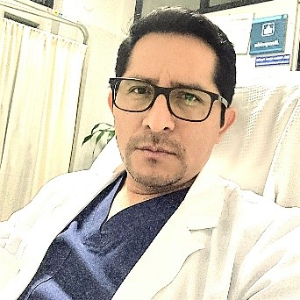Title : Multimodal minimally invasive surgery in the treatment of neurocysticercosis
Abstract:
Introduction: Neurocysticercosis (NCC) is still a frequent cause of neurosurgical consultations in most developing countries. Conventional approaches for the resection of large cysts have been used for many years. We report here our experience in the neurosurgical management of NCC using diverse minimally invasive approaches according to the localization of lesions: minimal craniotomy for lesions in the Sylvian fissure, stereotactic surgery for lesions in the posterior fossa, and endonasal neuroendoscopy for lesions in the basal cisterns.
Methods: We reviewed the charts of 24 consecutive NCC patients who had minimally invasive surgery to resect NCC lesions in a neurological referral center in Lima, Peru. Three approaches were used: microcraneotomies through the anterior Sylvian point (n=16), stereotactic surgery (n=6), and endonasal endoscopy (n=2), between January 1, 2016, and July 31, 2022. Demographic and clinical data as well as post-surgical evolution are presented using descriptive statistics.
Results: Clinical improvement was observed in 23 out of 24 cases, with complete resolution of symptoms in nine and partial in 14. One patient evolved poorly and worsened his symptoms. Twenty-two patients received antiparasitic treatment after surgery. Relapse of NCC lesions was observed in three patients.
Conclusions: Minimally invasive surgical approaches provide an excellent alternative for the management of patients with NCC, with good surgical and functional results, also markedly reducing the parasitic mass for further antiparasitic treatment.
Keywords: Neurocysticercosis, minimally invasive surgery, endonasal endoscopic, anterior Sylvian point, stereotactic surgery.
Audience Take Away Notes:
- Neurocysticercosis is a public health problem that generates a lot of neurological morbidity. We must be prepared to offer our patients new surgical treatment approaches
- Many years of experience treating patients with neurocysticercosis allowed us to treat these patients with minimally invasive surgeries with good functional results
- This information will be useful for neurosurgeons, neurologists and professionals related to public health
- These minimally invasive procedures allow these patients to be treated with minimal trauma, and could be replicated in any hospital
- Minimally invasive approaches in neurosurgery allow us to treat all types of pathologies with minimal manipulation of healthy brain tissue
- List all other benefits:
- They are new forms of neurosurgical treatment for NCC
- Accessible to any Hospital



